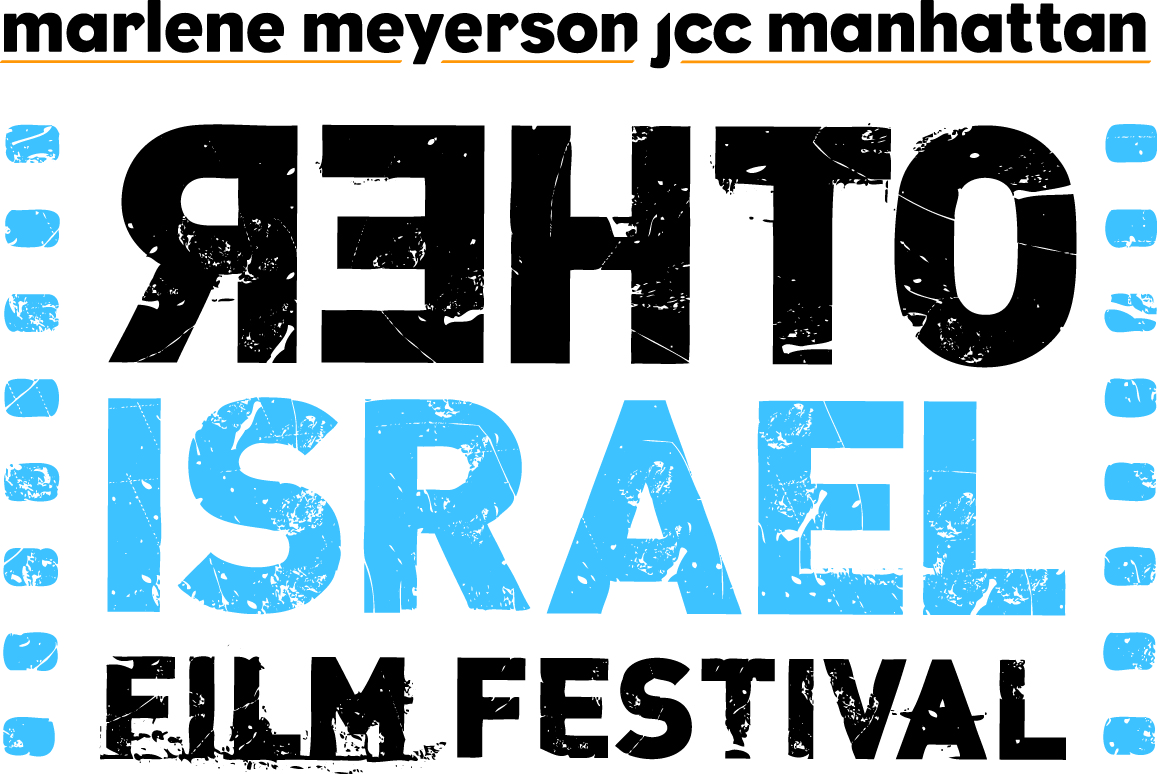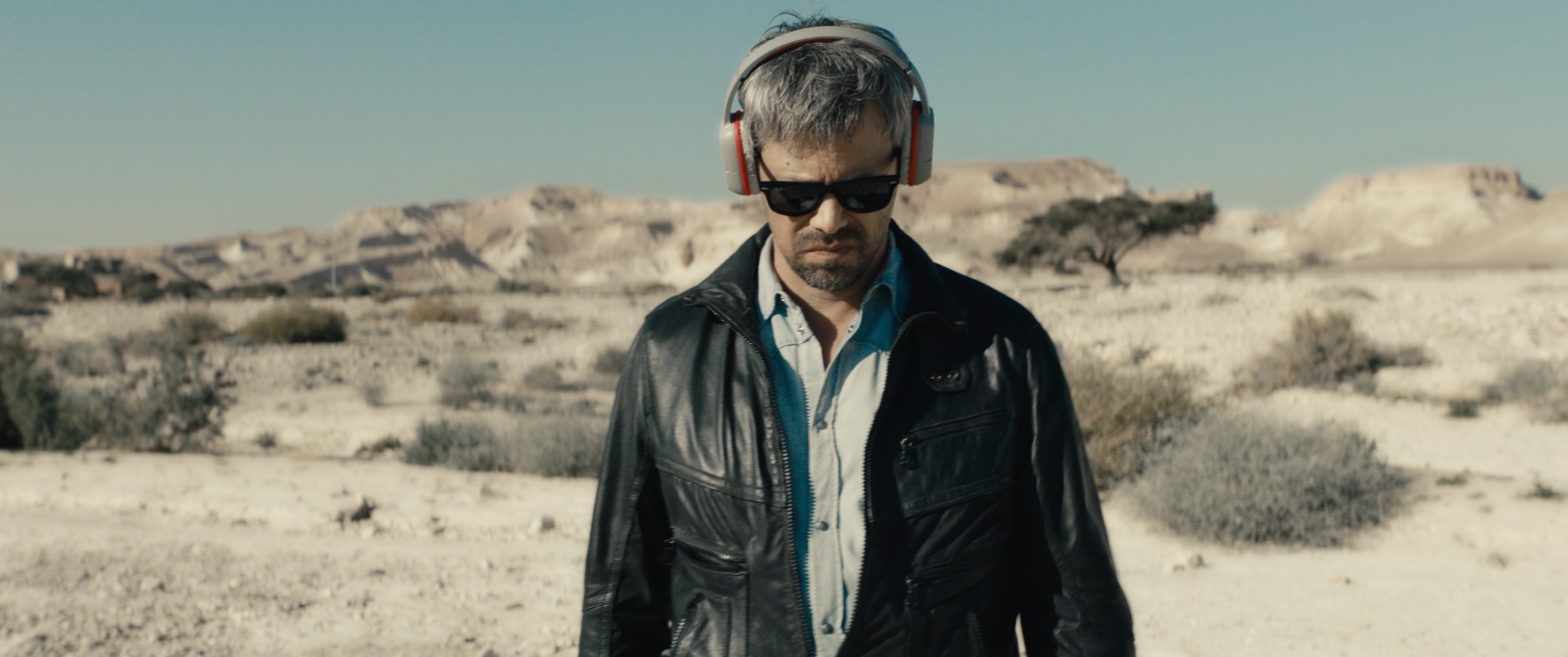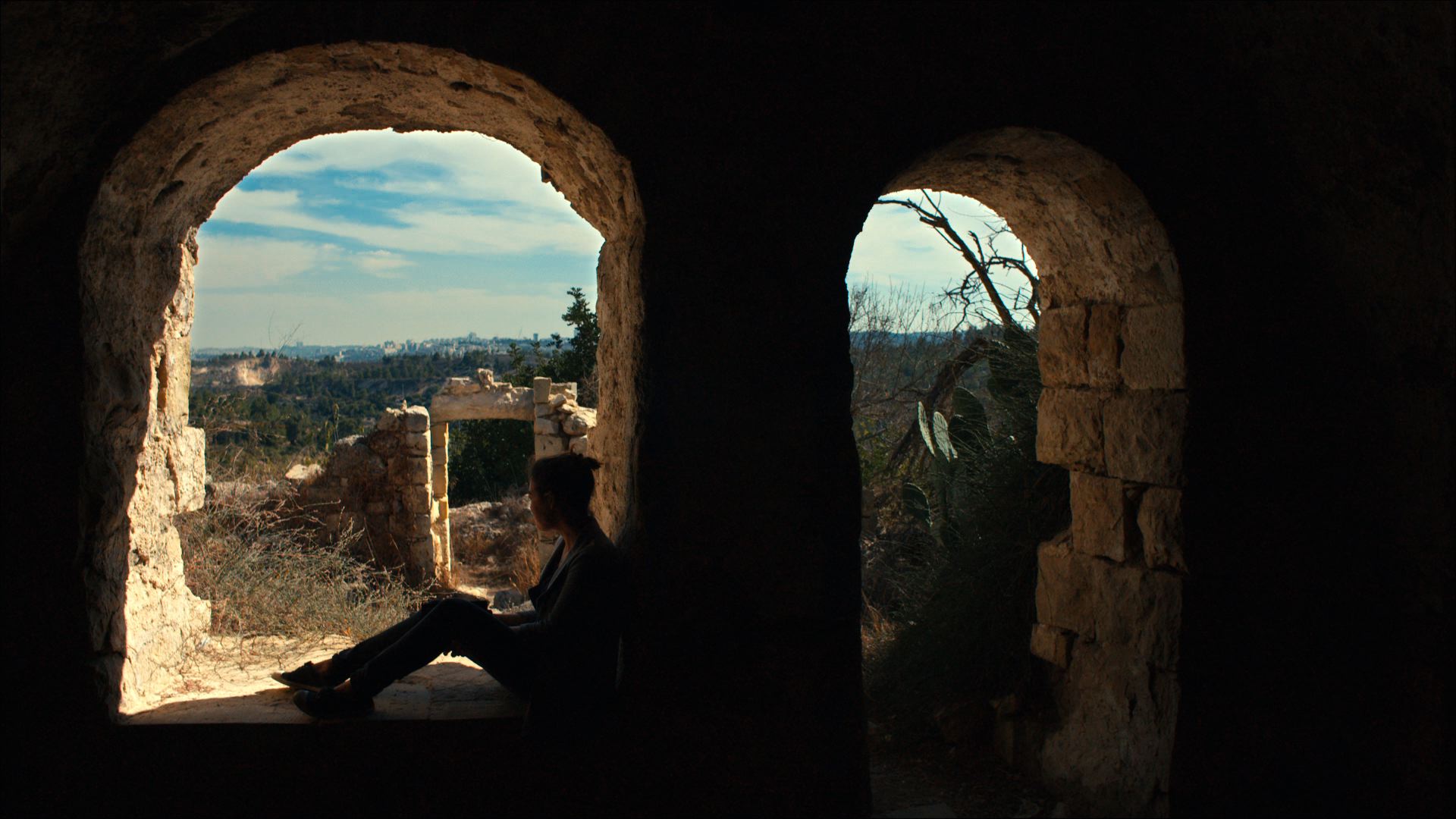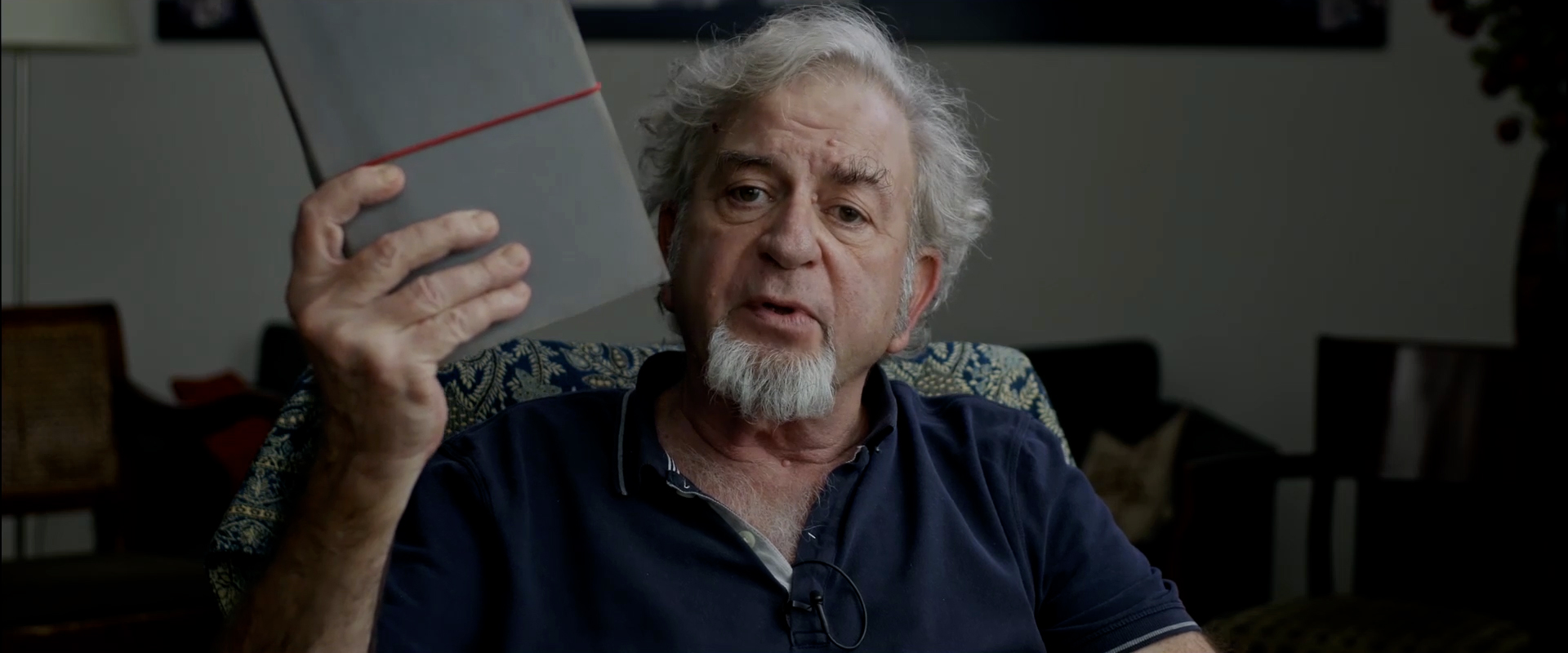|
|
||
|
Pro Tools
FILMFESTIVALS | 24/7 world wide coverageWelcome ! Enjoy the best of both worlds: Film & Festival News, exploring the best of the film festivals community. Launched in 1995, relentlessly connecting films to festivals, documenting and promoting festivals worldwide. Working on an upgrade soon. For collaboration, editorial contributions, or publicity, please send us an email here. User login |
New York: Other Israel Film Festival 2021
The 15th annual Other Israel Film Festival (OIFF) was held in a hybrid format with online and in-person participation from November 4-11 at the Marlene Meyerson Jewish Community Center (JCC) in Manhattan. The Israel Film Center was established there by Carole Zabar. For years, The Israel Film Center has successfully expanded its audience using streaming platforms to facilitate access to its productions and film festivals both in person at its theater and from home. The pivoting towards the use of digital platforms is now embraced by most major festivals. Though there are about fifty Israel and/or Jewish film festivals in the United States the JCC’s Israel film center has risen to the largest non-profit organization in the US focusing on films on Israeli and Jewish issues. Through its Israel Film Center STREAM service, and several annual festivals, JCC presents outstanding problem oriented features and documentaries to enable the public to engage in inspiring critical reflection and offers support for independent Jewish and Israeli filmmaking. The streaming service currently distributes more than 250 productions incorporating many from its past film festivals. During the OIFF festival period most of its films can be screened nationwide online through the otherisrael.org platform. The streaming service includes 160 films from Israel, 25 from Germany, 23 from France, 10 from the US and 5 from Palestine and fewer from many other countries in its collection. Many of these films have been co-produced. The online audience can select from the 250 films offered, which include 47 documentaries and 37 features. Since its launch in 2007, the streaming service has rapidly developed into a central US site for Israeli and Jewish films and in combination with the film festivals greatly expanded the audience. Apart from the Other Israel Film Festival, three film festivals are held each year at the Center including the Israel Film Center Festival founded in 2012 focusing on new Israeli films, the ReelAbilities Film Festival promoting awareness of people with disabilities, and the Cinematters: NY Social Justice Film Festival which has become the largest film festival organized by the Israel Film Center. It also arranges year-round programming at the Jewish Community Center, with film programs of newly released and classic productions to foster insights into filmmaking and the issues addressed by filmmakers. The Other Israel Film Festival was founded in 2007 by Carole Zabar and is designed as an instrument to generate reflection about political cultural and social issues experienced by minority groups in Israel and the occupied areas, to learn about the complexity of the problems they experience, and the problems posed for the state of Israel. Despite the apparent reduction of tensions between Arab countries and Israel, a growing number of Israeli features and documentaries are cogently expressing Israel’s internal problems. These productions are borne from the immuring problems in the relation between Israeli authorities and Palestinians living in Israel and the occupied areas. The Other Israel film festival had several films documenting these unresolved and festering issues. In cooperation with the New Israel Fund, Encounter, J-Street and the Inter Agency Task Force on Israel-Arab issues, over 14 feature length films and shorts were shown and streamed on current themes ranging from Palestinian- Israeli relations, reflections about displacement of Arabs from their land, and the perspectives of a former prominent military and political leader. This year’s OIFF’s selection was the strongest and most outspoken I have attended over the last years. As stated by Carole Zabar when she introduced OIFF 2021, “This summer’s violent events, which spilled over from Israel and Gaza to the U.S, shows us again how fractured our community is over the topic of Israel and Palestine and how important it is to hear the other’s perspective”.
An outstanding example of these critical productions is Nadav Lapid’s 2021 feature AHED’S KNEE an Israeli – France production by a director known for his uncompromising approach to the topics he covers. It was the co-winner of the 2021 Cannes Grand Jury prize and has been presented in most major international film festivals including the New York Film Festival. In this story, Y a filmmaker involved in the pre-production of a film on the abusive treatment of Palestinian artists by Israeli authorities, travels to the small remote town of Sapir. He was invited to show one of his films in a local library run by Israel’s ministry of culture. Y must sign an official document with a prepared list of the points he intends to cover in the post-viewing discussion, without which he will not be allowed to screen his film or be paid. His interactions with the librarian, Yahalom, and the audience watching his film, provide the narrative basis for AHED’S KNEE. The mood is set early in the film by the portrayal of a true incident. Ahed’s knee was smashed after she slapped a soldier and was sent to prison. Interactions between the trusting and accommodating Yahalom and a cynical and aggressive Y are driven by Y’s uncompromising moral position on freedom of speech and artistic expression. Yahalom adheres to the policies of the ministry of culture, whose pending but never passed Knesset Culture Loyalty Bill would have threatened all Israeli artists and extinguish their freedom of expression. In an animated exchange with Yahalom, Y learns that unless he signs and adheres to the ministry of culture’s pre-prepared points of discussion for his screening, he will be blacklisted and never get any future support from official agencies. Y argues that the official points of discourse make any critical analysis of Israeli conditions impossible. He also suggests, based on his military service, that the army creates an artificial world of imaginary threats to justify oppression and violence. Under duress, Yahalom reveals that the minister hates art and culture. Without Yahalom’s knowledge, Y records her statements and plays them for the audience after screening his film. Y states that the tape will be sent to the press. Yahalom threatens to kill herself and some members of the audience attack Y and tell him that he faces death if anything happens to her.
From the perspective of Nadav Lapid governmental institutions, education, and armed services firmly implant in Israelis the notion of the justified domination of Arabs and the colonization of Palestinian lands, expanded and occupied by Israel. Michal Weits offers in the 2021 BLUE BOX produced by Israel, Canada, and Belgium a persuasive documentation in a personalized account of her great grandfather Joseph Weits role from the mid-thirties on to create in a “Land without people for a people without land”, a Jewish state and a home for Jews. He is best known to most Jews and Israelis as the Jewish National Fund official who engaged in the forestation of Palestinian and Israeli lands with funding from the diaspora and local Jews. However, few know about Joseph Weits facilitation of the expulsion of Arabs during the war of independence, an essential part of his biography. He suggested to Bed Guion to prevent the return of any Arabs and to destroy their villages or settle Jews there immediately. Michal Weits was the first member of her family who studied 27 volumes of Joseph Weits handwritten diaries and related documents before and after he served as the longtime director of Lands and Afforestation for the Jewish National Fund. Her research covered his correspondence and minutes of meetings with Ben Gurion and other officials. Joseph Weits legacy was the small metal Blue Box used to collect donations for forestation and the Pandora’s black box in Michal Weits words which symbolized the uncertain future of Israel by the time he resigned from the JNC in 1966 and died in 1972. Michal Weits discussed her findings and the moral issues they raised with her relatives. They ranged from her great grandfather’s and Ben Gurion’s convictions that Arabs and Jews can never live cooperatively in the same state, that war victories legitimize expropriating land and purging their former residents, and that Israel sold 250,000 acres of Palestinian lands to the Jewish National Fund (JNC) directed by J. Weits. Not knowing J.Weits work, his descendants seemed to be oblivious to his function as the principal architect of the transfer of Arabs from the lands Israel claimed and seemed to forget that money raised by the JNC or provided by Israeli agencies was used for more than planting trees, specifically the systematic destruction of Arab homes and, after the occupation of the Westbank in 1967, annexation of East Jerusalem and Palestinian communities. Michal’s relatives preferred to remain silent about that part of their family’s and Israel’s history to avoid reckoning with the past. Joseph Weits did not share Ben Gurion and his successors Golda Meir or Menachim Begins views that the refugee and Palestinian problem would somehow be solved. He argued to the contrary that occupation of these annexed areas was a fundamental threat to the future of Israel. After all, the people living there did not disappear as did the 750,000 who left of were forced to do so during the war of independence and were not allowed to return to their homes. In 2010 about 7 million globally dispersed Palestinian descendants lived mostly in refugee camps. Joseph Weits withdrew from the public sphere after his retirement and refused to participate in any celebration of settlements in the occupied areas.
Nadav Lapid depicted the political constraints on people’s understanding of the problems Israel faces. Michal Weits provided a superb case study of the suspension of critical discussions of the past. For Avi Mograbi, who directed the 2021 Israeli production co-funded by France, Finland, Germany and Israel THE FIRST 54 YEARS: AN ABREVIATED MANUAL FOR MILITARY OCCUPATION, his objective was to show how the occupation of annexed areas on the West Bank has become an accepted normal fact for most Israelis. Mograbi depicts how political leaders and the army, in charge of about 70% of the occupied area, are continuing the decades old policies of subjugating Palestinians and controlling their lands to create more space for the settlers. Close to 700,000 settlers are living on the West Bank and East Jerusalem. Mograbi offers a detailed analysis of steps and methods which have been developed by official agencies that have made that goal a reality. With his documentary, Mograbi follows the objective of Breaking the Silence (BtS), an organization founded in 2003 by iDF officers and soldiers who were deployed on the West Bank. Mograbi closely collaborates with BtS, which has published more than 1200 reports on the West Bank experience by members of the armed services. Mograbi’s documentary is built upon selections from 2000 videotaped statements and relevant excerpts. With their images and names clearly visible, Soldiers and officers report how Palestinians were dehumanized in their training and how they were trained as young soldiers to effectively accept and play their colonialist role in the repression of Palestinians. Interspersed with their statements is supplementary archival material, private recordings, television news, and IDF footage backing up the testimonies. Recruited at the age of 18, the young soldiers may initially show some reluctance at destroying Palestinians’ homes, brutalizing Arab males no matter how old they were, beating children and women, and even wounding or killing suspected Palestinians somehow identified as terrorists. But through months and years of service they are conditioned to violate human rights and disregard moral considerations. Officers tend to agree that requests received from their superiors and local secret service officials frequently lack normally required evidence. Mograbi includes testimony by some IDF members that they were forced to engage in a revenge killing of numerous Palestinian policeman at a street junction because in that neighborhood several Israeli engineers had been killed. Here, the faces of these witnesses were obscured because the case is being reviewed by the Den Haag International Criminal Court investigating war crimes by Israel and Hamas. Essential to the position Mograbi takes is of the obvious failure of Israel’s military and government policies. Though the confrontations are becoming more violent each year they have not resulted in the complete subjugation of Palestinians. Compared to past decades, there is now more solidarity among them and the so called “Israeli Arabs”, a term invented by the government, are now closer to the Palestinians. Queried after the screening of his film if the next 54 years may bring a change and if there is any hope, Mograbi’s response was simply no. He fears that Israel’s Jewish population is accepting an apartheid society and that the military law governing the life of Palestinians has moved Israel far beyond the claim of being a democratic society. New York Claus Mueller
02.12.2021 | Claus Mueller's blog Cat. : AHED’S KNEE Avi Mograbi BLUE BOX Michal Weits Nadav Lapid Other Israel Film Festival THE FIRST 54 YEARS: AN ABREVIATED MANUAL FOR MILITARY OCCUPATION
|
LinksThe Bulletin Board > The Bulletin Board Blog Following News Interview with EFM (Berlin) Director
Interview with IFTA Chairman (AFM)
Interview with Cannes Marche du Film Director
Filmfestivals.com dailies live coverage from > Live from India
Useful links for the indies: > Big files transfer
+ SUBSCRIBE to the weekly Newsletter Deals+ Special offers and discounts from filmfestivals.com Selected fun offers
> Bonus Casino
About Claus MuellerThe EditorUser contributions |



























